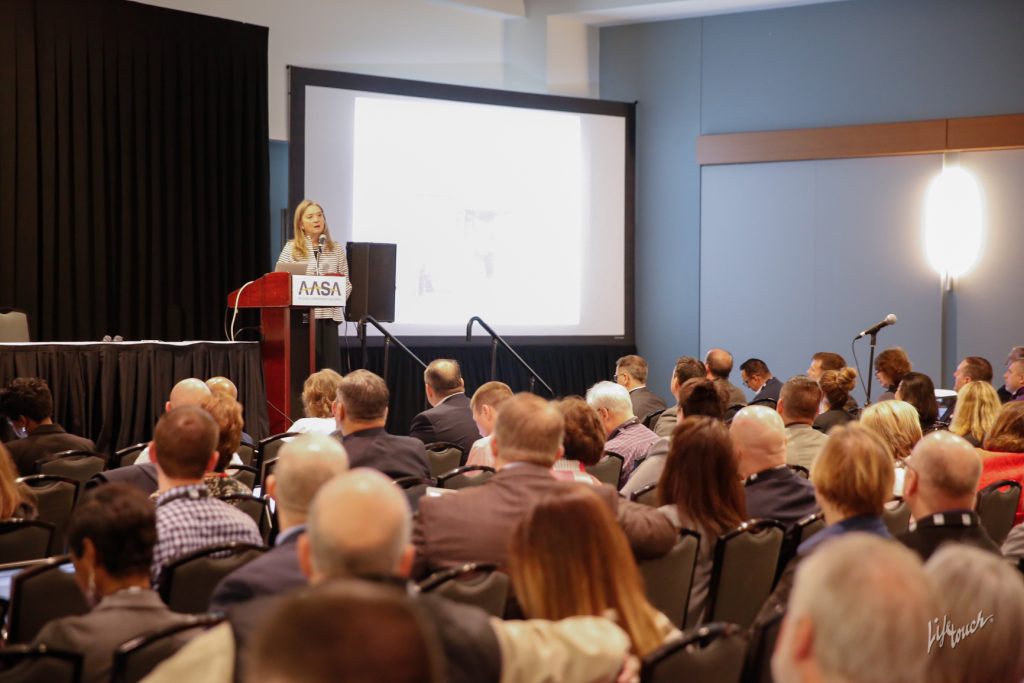Curriculum expert Heidi Hayes Jacobs wants to end old-school nostalgia.
Literally.
To make her point at a Thought Leader session Thursday morning at the AASA national conference, Jacobs projected a photo of the standardized wooden desk and chair combination – ubiquitous in many classrooms – on the screen. Then she showed black and white photos of 19th-century schoolhouses that closely resemble self-contained classrooms of today.
Educators must consider how today’s instruction, furniture and learning spaces need to be transformed to reflect student needs. A 6-foot-2-inch high school student cannot sit comfortably in the standard furniture remarked Jacobs.
“We make it hard physically for students in classrooms,” Jacobs noted. “Then we wonder why he can’t concentrate.” It is not only the physical environment that needs to be revamped; so too should the 20th-century curriculum, instructional methods and antiquated schedules.
“Would you take your child to the doctor using 1980 methods?” Jacobs asked. “I don’t think so.”
She challenged superintendents to look at what’s antiquated, classic and contemporary. In the digital age, students are learning and creating differently. Yet on a recent visit to a classroom, she saw antiquated instruction where a teacher had a circle of students – 38 students, where no one really had a voice.
In today’s world, schools need more open learning spaces and real-word lessons designed to stimulate students. Instead of assigning students to make a poster board, Jacobs recommends asking them to make a podcast; instead of a writing a report, have students write a case study. Instead of limiting conversations to their classmates, use Skype to converse with their global counterparts.
Educators should help students become global ambassadors because things have changed, Jacobs said. Students need teachers who will help them be literate self-navigators, mindful citizens, and savvy media critics. It’s up to superintendents and their communities to make this happen.
“Sometimes a small move is very bold,” she said.
Read Paul McDermott’s blog post about this event.
(Chris Echegaray is a Nashville-based freelance writer reporting for Conference Daily Online.)


